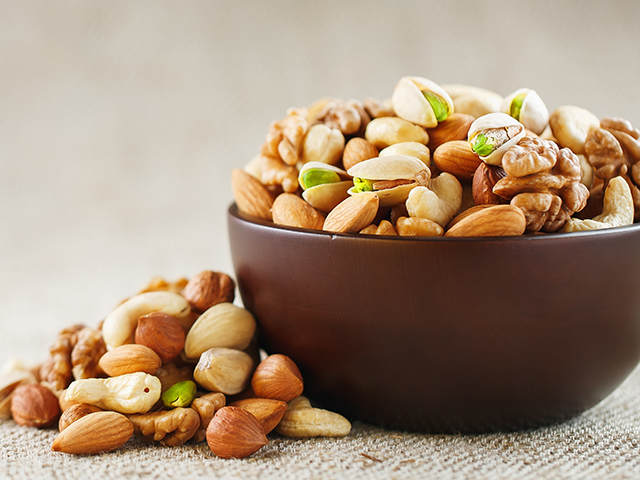Magnesium, a vital mineral found in various foods, plays a crucial role in numerous physiological processes. For athletes, understanding how magnesium influences performance can be key to optimizing training and achieving peak physical condition. This post explores the science behind magnesium and its impact on athletic performance, highlighting its importance in muscle function, energy production, and overall well-being.
The Role of Magnesium in the Body
Magnesium is involved in over 300 enzymatic reactions within the body. Its functions extend to various systems, including muscle and nerve function, protein synthesis, and energy production. For athletes, these roles are particularly significant, as magnesium supports the body’s ability to perform at high levels and recover efficiently.
Muscle Function and Magnesium
Magnesium is essential for muscle function. It helps regulate muscle contractions by influencing calcium levels in muscle cells. Calcium triggers muscle contraction, while magnesium facilitates relaxation. An optimal balance between these two minerals is necessary for proper muscle function. Without sufficient magnesium, athletes may experience muscle cramps, spasms, or general fatigue, which can impair performance.
Research suggests that magnesium can help reduce muscle soreness and improve recovery times. During intense exercise, magnesium is lost through sweat, and maintaining adequate levels can assist in quicker recovery and less discomfort post-exercise. Ensuring proper magnesium intake may help mitigate the risk of cramps and enhance overall muscle performance.
Energy Production and Magnesium
Energy production is another area where magnesium plays a vital role. Magnesium is a cofactor in the production of adenosine triphosphate (ATP), the primary energy carrier in cells. ATP is crucial for fueling all cellular processes, including those involved in athletic activities.
Athletes require a significant amount of energy to perform optimally, and a lack of magnesium can hinder ATP production, leading to decreased energy levels and reduced endurance. Ensuring adequate magnesium levels helps support efficient energy production, enabling athletes to maintain stamina and intensity throughout their training and competition.
Magnesium and Hydration
Proper hydration is essential for athletic performance, and magnesium contributes to this aspect as well. Magnesium aids in regulating electrolyte balance, including potassium and sodium, which are critical for fluid balance in the body. Electrolyte imbalances can lead to dehydration, muscle cramps, and impaired performance.
Athletes who engage in prolonged or intense exercise may be at higher risk of dehydration and electrolyte imbalances. By supporting electrolyte balance, magnesium helps maintain hydration status and overall bodily function, which is crucial for sustaining performance during extended periods of activity.
Recovery and Magnesium
Recovery is a critical phase in any athletic training regimen. Magnesium plays a role in reducing inflammation and oxidative stress, both of which can impact recovery. After intense exercise, the body experiences increased oxidative stress and inflammation, which can contribute to muscle soreness and longer recovery times.
Studies have shown that magnesium may help counteract these effects by supporting antioxidant defense systems and reducing markers of inflammation. This can lead to faster recovery, allowing athletes to return to their training routines more quickly and with less discomfort.

Dietary Sources of Magnesium
To ensure adequate magnesium intake, athletes should focus on incorporating magnesium-rich foods into their diets. Some excellent sources include:
- Leafy green vegetables: Spinach, kale, and Swiss chard are rich in magnesium.
- Nuts and seeds: Almonds, cashews, and pumpkin seeds provide significant amounts of magnesium.
- Whole grains: Brown rice, quinoa, and oats are good sources.
- Legumes: Beans, lentils, and chickpeas contribute to magnesium intake.
- Fruits: Bananas and avocados offer magnesium along with other beneficial nutrients.
Including a variety of these foods in daily meals can help maintain adequate magnesium levels and support overall athletic performance. For more insights and further information about health wellbeing magnesium supplements, visit their page to learn more.
The Importance of Balance
While magnesium is essential for optimal athletic performance, balance is crucial. Excessive intake of magnesium, whether through diet or other means, can lead to adverse effects such as gastrointestinal discomfort or, in extreme cases, more serious health issues. It is important for athletes to focus on meeting their magnesium needs through a well-rounded diet and to consult with a healthcare professional if they have specific concerns or conditions affecting their magnesium levels.
Conclusion
Magnesium is a vital mineral with significant implications for athletic performance. Its roles in muscle function, energy production, hydration, and recovery make it a key player in an athlete’s overall health and performance. By understanding the science behind magnesium and ensuring adequate intake through a balanced diet, athletes can enhance their training outcomes, improve recovery times, and achieve their performance goals. Embracing the importance of magnesium can be a powerful step toward optimizing athletic success and well-being.









